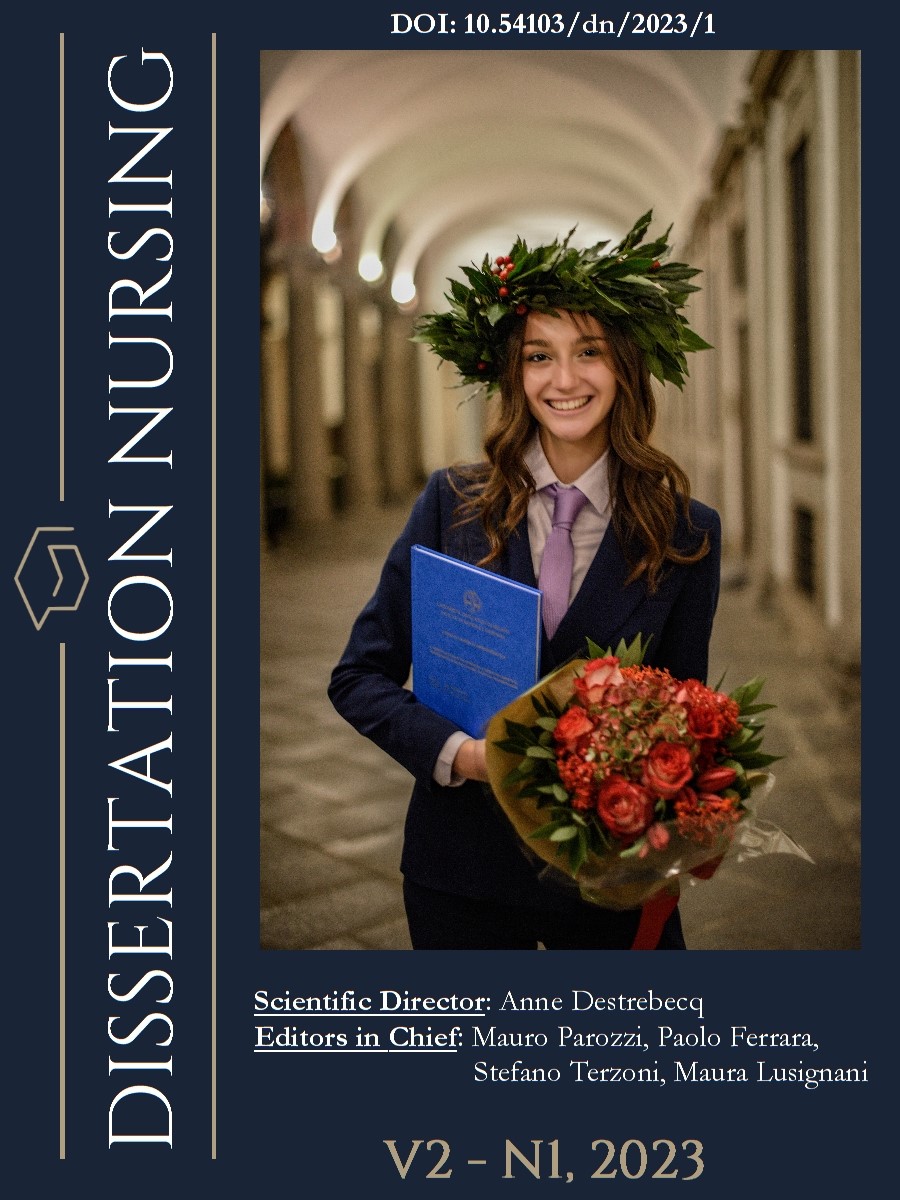Virtual Gamification in Mental Health Nursing Education: Protocol for a Scoping Review
DOI:
https://doi.org/10.54103/dn/18637Keywords:
Gamification, Serious Game, Nursing, Education, Mental HealthAbstract
BACKGROUND:
The global activation of precautionary measures to protect public health has certainly reinforced the interest of teachers in virtual simulation methodologies. In this educational framework, Serious Games seem to allow for better accessibility, including the possibility of being enjoyed or repeated a hypothetically unlimited number of times without necessarily being limited by the presence of lecturers, the availability of laboratories, the available equipment and the possible commitments of the learners themselves, contributing to the learning experience by improving the motivation, commitment to cognitive training and self-confidence of nursing students. The fields of application of virtual gamification (defined as the integration of game features in non-game contexts) seem to be varied, however, some particular fields, such as the Mental Health setting, seem to have promising results in studies with still heterogeneous design and objectives, showing the need to expand the available evidence.
METHODS AND ANALYSIS:
A scoping review will be performed according to the methodology of the Joanna Briggs Institute. The biomedical databases consulted will be MEDLINE (PubMed), Scopus, WebOfScience, Cochrane Library, Cinhal and Embase; extension of the grey literature search will be performed by consulting Google Scholar, ClincialTrials.gov, TRIP (Turn Research Into Practice), medRxiv, OSF Preprints, Networked Digital Library of Theses and Dissertations, Open Access Theses and Dissertations. Articles in Italian or English language available in full text format will be included. The presentation of study information will be done either through dedicated tables or in narrative form.
Downloads
References
Shin H, Rim D, Kim H, Park S, Shon S. Educational Characteristics of Virtual Simulation in Nursing: An Integrative Review. Clin Simul Nurs [Internet]. 2019;37:18–28. Available from: https://doi.org/10.1016/j.ecns.2019.08.002
Smith PC, Hamilton BK. The effects of virtual reality simulation as a teaching strategy for skills preparation in nursing students. Clin Simul Nurs [Internet]. 2015;11(1):52–8. Available from: http://dx.doi.org/10.1016/j.ecns.2014.10.001
Borg Sapiano A, Sammut R, Trapani J. The effectiveness of virtual simulation in improving student nurses’ knowledge and performance during patient deterioration: A pre and post test design. Nurse Educ Today [Internet]. 2018;62(November 2017):128–33. Available from: https://doi.org/10.1016/j.nedt.2017.12.025
Duff E, Miller L, Bruce J. Online Virtual Simulation and Diagnostic Reasoning: A Scoping Review. Clin Simul Nurs [Internet]. 2016;12(9):377–84. Available from: http://dx.doi.org/10.1016/j.ecns.2016.04.001
Gentry SV, Gauthier A, Ehrstrom BLE, Wortley D, Lilienthal A, Car LT, et al. Serious gaming and gamification education in health professions: systematic review. J Med Internet Res. 2019;21(3):6458534.
Vermeir JF, White MJ, Johnson D, Crombez G, van Ryckeghem DML. The effects of gamification on computerized cognitive training: Systematic review and meta-analysis. JMIR Serious Games. 2020;8(3).
Verkuyl M, Hughes M. Virtual Gaming Simulation in Nursing Education: A Mixed-Methods Study. Clin Simul Nurs [Internet]. 2019;29:9–14. Available from: https://doi.org/10.1016/j.ecns.2019.02.001
Woon APN, Mok WQ, Chieng YJS, Zhang HM, Ramos P, Mustadi HB, et al. Effectiveness of virtual reality training in improving knowledge among nursing students: A systematic review, meta-analysis and meta-regression. Nurse Educ Today [Internet]. 2020;(June):104655. Available from: https://doi.org/10.1016/j.nedt.2020.104655
Verkuyl M, Romaniuk D, Atack L, Mastrilli P. Virtual Gaming Simulation for Nursing Education: An Experiment. Clin Simul Nurs [Internet]. 2017;13(5):238–44. Available from: http://dx.doi.org/10.1016/j.ecns.2017.02.004
van Gaalen AEJ, Brouwer J, Schönrock-Adema J, Bouwkamp-Timmer T, Jaarsma ADC, Georgiadis JR. Gamification of health professions education: a systematic review. Adv Heal Sci Educ [Internet]. 2021;26(2):683–711. Available from: https://doi.org/10.1007/s10459-020-10000-3
Vandyk AD, Lalonde M, Merali S, Wright E, Bajnok I, Davies B. The use of psychiatry-focused simulation in undergraduate nursing education: A systematic search and review. Int J Ment Health Nurs. 2018;27(2):514–35.
Liu W. Virtual Simulation in Undergraduate Nursing Education. CIN Comput Informatics, Nurs. 2021;Publish Ah(0):1–11.
Bhoopathi PS, Sheoran R, Adams CE. Educational games for mental health professionals: a Cochrane review. Int J Psychiatr Nurs Res. 2007 May;12(3):1497–502.
Salmond S, Bennett MJ. Systematic review of qualitative evidence. Comprehensive Systematic Review for Advanced Practice Nursing, Third Edition. 2021. 295–349 p.
McGowan J, Sampson M, Salzwedel DM, Cogo E, Foerster V, Lefebvre C. PRESS Peer Review of Electronic Search Strategies: 2015 Guideline Statement. J Clin Epidemiol [Internet]. 2016;75:40–6. Available from: http://dx.doi.org/10.1016/j.jclinepi.2016.01.021
Downloads
Published
How to Cite
Issue
Section
License
Copyright (c) 2023 Mauro Parozzi, Sonia Lomuscio

This work is licensed under a Creative Commons Attribution-NonCommercial-NoDerivatives 4.0 International License.
Accepted 2022-10-03
Published 2023-01-30















